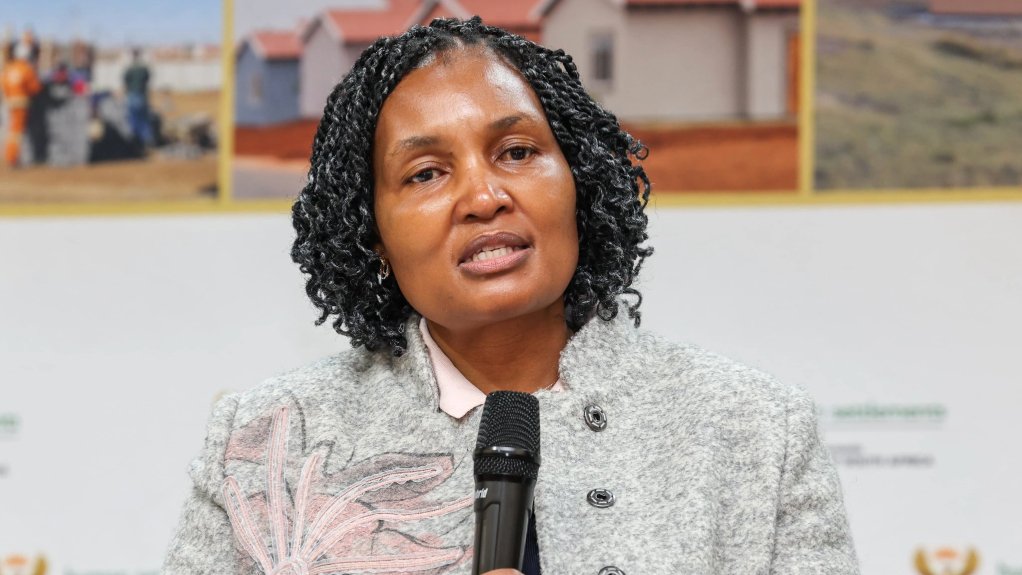The South African government is facing an urgent housing crisis, as the waiting list for public housing continues to grow, compounded by widespread unemployment and the devastation of natural disasters. With over 4,000 informal settlements throughout the country and a backlog of three million housing units, Human Settlement Minister Thembi Simelane has announced a shift in strategy regarding public housing provision, moving beyond the traditional Reconstruction and Development Programme (RDP) houses.
During a recent title deed handover ceremony in Extension 10, Soshanguve, north of Pretoria, Simelane expressed concern over the compounding factors contributing to homelessness—particularly the ongoing floods in KwaZulu-Natal and the Eastern Cape. “You know there are floods in Mutata, you know there are floods in KZN,” she remarked. “It’s a rainy season, we’re anticipating more. Every December, there are fires in Cape Town. This just shows you that the pressures can never cease.” She cited the critical need for at least R6 billion in funding just for the City of Tshwane to address its housing shortages, a figure that exceeds the budget allocations available.
With approximately 4,075 informal settlements currently existing nationwide, Simelane detailed a staggering backlog, estimating that each settlement houses between 7,000 to 9,000 households. “This gives you a backlog countrywide of over three million houses in our register that need attention,” she indicated, adding the complexity of housing assessments that must unfold prior to initiating any new settlements.
The minister noted that many South Africans who would ideally be in a position to construct their own homes have been rendered dependent on state assistance due to soaring unemployment levels. “Even the youth, who ordinarily wouldn’t opt for a BNG house, are now compelled to seek shelter as they mature and establish families,” she explained. “This nature of dependency increases the number of informal settlements and places a strain on municipal infrastructure, resulting in significant socio-economic repercussions.”
Simelane emphasised that current government funding is insufficient to meet the increasing demands for housing on a national scale. “We are unable to rely solely on the fiscus at this moment,” she stated. “We will need to discuss innovation and how we can better engage the private sector to invest in social housing, developing solutions that will benefit both the economy and the people in need of shelter.” Historically, the government has focused on building complete homes through the RDP model, but Simelane acknowledged that this approach may no longer be sustainable as financial constraints tighten.
“In the future, we may need to provide serviced land allocations while encouraging other economic programmes that enable communities to build their own homes,” she concluded. “Around three million people are looking for shelter in South Africa, and addressing this needs a bold new approach.”
